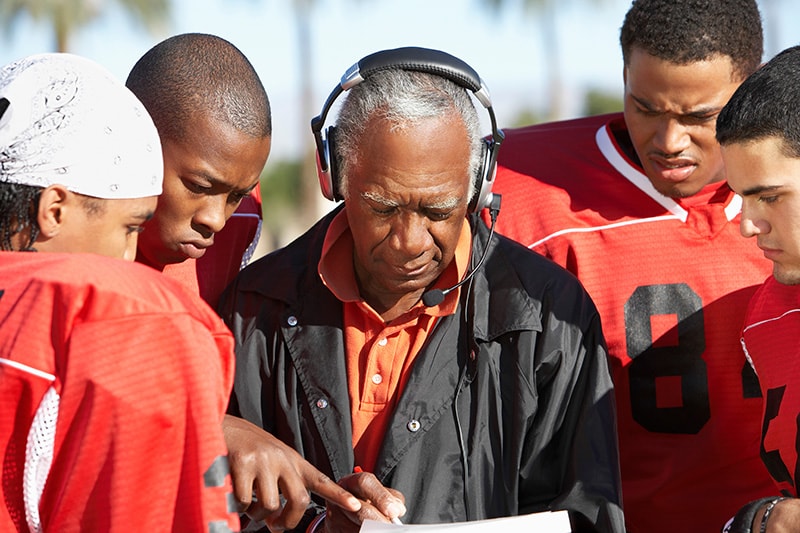Why Vince Lombardi Won
- Category: Coaches & Trainers

Working with a Left-Brained Coach
Vince Lombardi was, for the uninitiated, one of the “winningest” coaches of modern American football and took the Green Bay Packers to legendary status with his left-brained, tough, relentless focus on winning. He famously said, “Winning isn’t everything, it’s the only thing.” For those with his gifts, tough perseverance come naturally.

Another Coach
Grant is the father of an 8-year-old football player. He is assistant coach for his son’s local junior league team and has not coached before. He’s a quiet, laid-back man with a great sense of humor and a tremendous love of kids and sports. He is also very left-brained when it comes to his natural brain-based strengths.
The head coach, Mitch, the father of a 7-year-old player, has several years of experience as a youth head coach. He’s a friendly, easy-going sort with a ready and contagious laugh. He loves kids, football, and the outdoors. His job permits the endless hours he volunteers with the team and the city league’s administration. Mitch has right-brained strengths: inclusive, friendly, with a great sense of humor.
The first three weeks of practice prove frustrating for Grant, as he sees them as disorganized, unproductive, and time-wasting because
-
There is no playbook
-
The quarterback position has no back up
-
There are no printed rosters, making it hard to learn players’ names
-
There are no warm-ups at the start of the nightly practices
The first three pre-season games are disasters, with kids lining up incorrectly and running in the wrong direction. Mitch laughs with the parents that it may be a LONG season, but that it’s still fun.
But Grant is not having fun. He questions whether he should have signed up for this and wonders if this volunteer coaching is suited to his brainstyle. Yet he doesn’t want to quit the team and his commitment to his son.
The Coach Gets Coached
Grant talks over the problem with his BrainStyles coach. He has ideas but is worried about being too aggressive, taking over the team, and changing Mitch’s formula
As his coach, I don’t give Grant answers; I ask questions to help him discover the best solutions.
Grant believes his ideas will help the team feel more productive and keep the boys focused and not misbehaving. However, he worries that Mitch might feel “one-upped” for not having made the changes himself.
(Note: The “insensitive” left-brained person understands his impact and others’ reactions, especially as potential obstacles to achieve an outcome. His gifts serve a goal. Most are willing to take the risk to offend (confront, set boundaries) if it leads to a worthwhile goal.)
I ask Grant if Mitch is resistant to suggestions from the assistant coaches. Grant realizes that no one has said anything to Mitch, though they’ve complained to each other. He admits not talking to Mitch directly is detrimental to teamwork. He decides to suggest having pre-game warm-ups to see how Mitch reacts.
The Contribution
Grant arrives at practice early the next night. He tells Mitch that he’s concerned about the boys not warming up prior to practice and suggests that they start with a warm-up. Mitch likes the idea and tells Grant to lead them in the drills. Encouraged, Grant then asks whether he could assist with offense, and Mitch grants him the title of Offensive Coordinator.
Grant has created a BrainStyles Strengths Contract™ with Mitch, by providing his strengths of focus, instructions, and efficiency to realize achievable goals, while Mitch handles the essential details of organizing the equipment, communications, and schedule.
The Results
Within two weeks, the team went on to win every game and finished second in their division. Vince Lombardi and Grant have the same brain-based gifts and applied them to the same sport. One was more visible and made a lot more money coaching football, but both did it for the love of people, the game, achievement, and confidence building. Who is to say which of them made the greater contribution? One thing is clear: applying your gifts to support others is how you make a difference.

